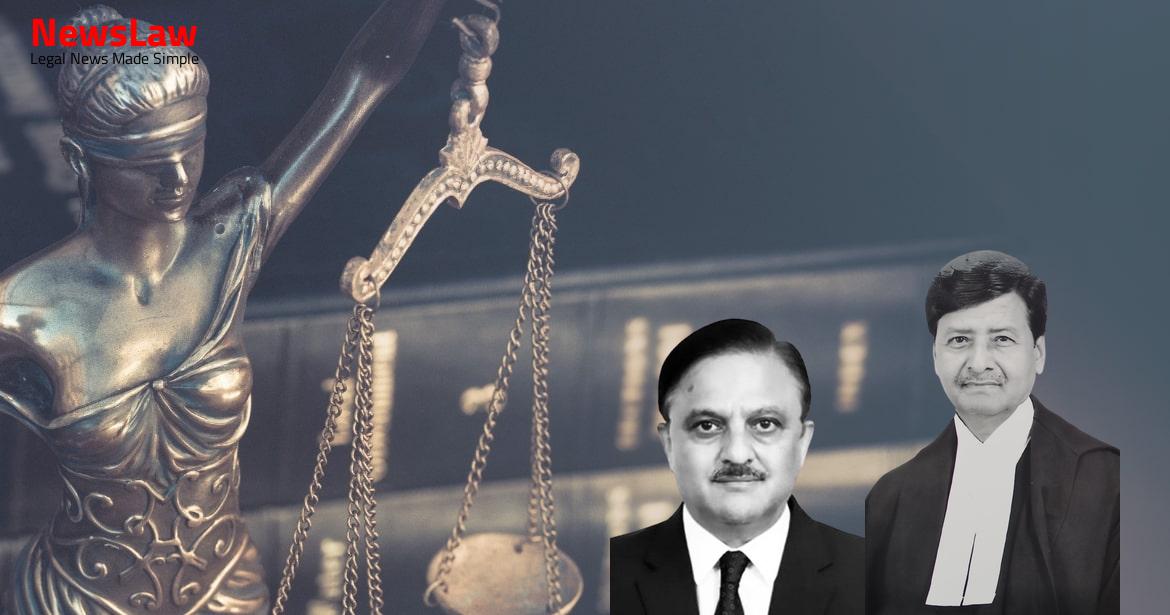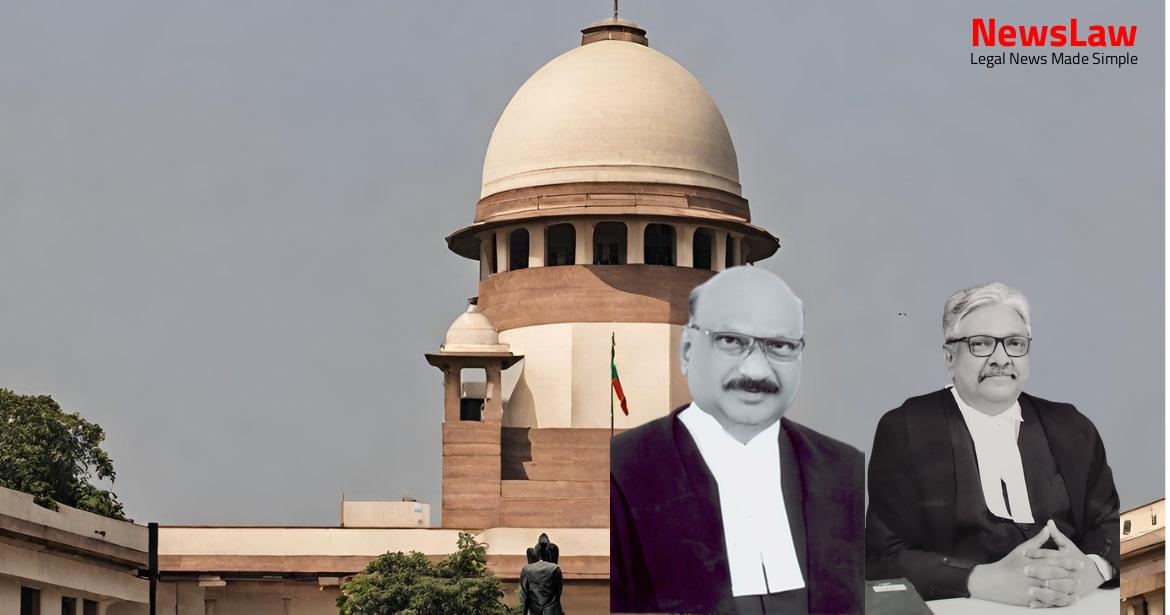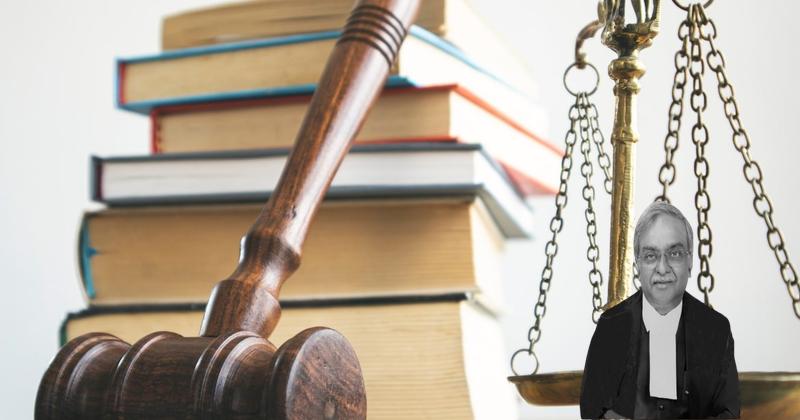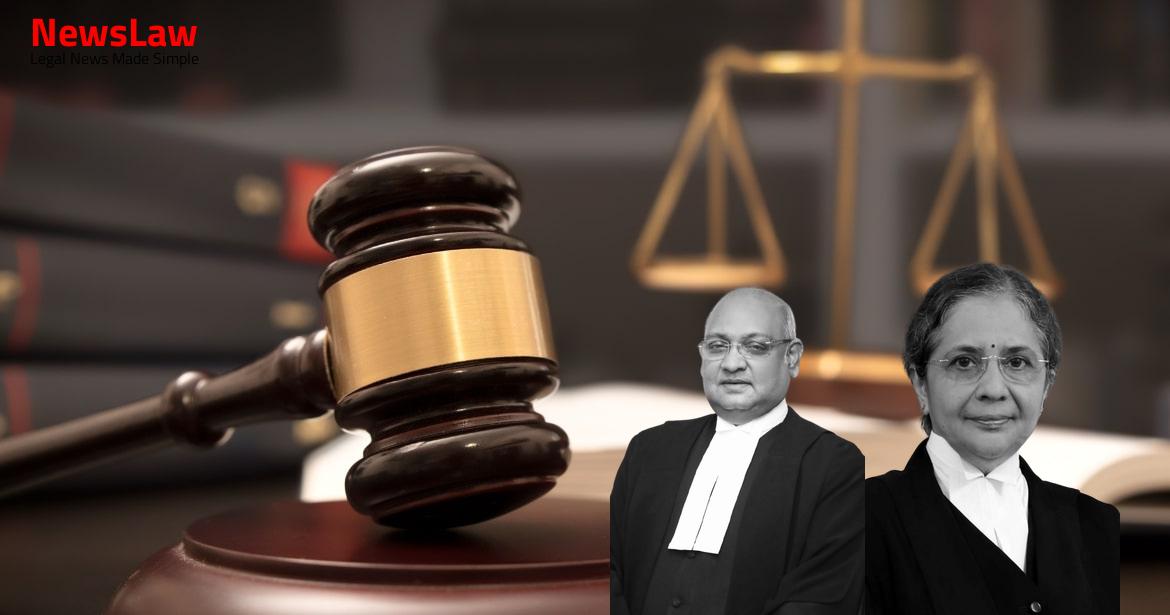In a recent legal case, the Court grappled with the complex issue of granting bail in the face of prolonged incarceration. The Court’s detailed legal analysis focused on harmonizing statutory restrictions with constitutional guarantees, highlighting the importance of timely justice and upholding the right to liberty. This case sheds light on the balancing act required by the judiciary to ensure a fair and efficient legal process while safeguarding fundamental rights.
Facts
- Charges were framed on 20 June, 2019 for various offences under different sections of IPC, Arms Act, and UAP Act.
- The de-facto complainant, PW 1, is still undergoing cross-examination which has been prolonged.
- The appellant was arrested on 6 July, 2012 based on a production warrant from Nagpur Central Jail.
- The appellant was previously in jail for a different case (FIR No. 28/2007) where he was acquitted in February 2014.
- Initially, 298 prosecution witnesses were listed, but the prosecution may only examine 100 to 105 witnesses.
- Multiple charge sheets were filed against different accused persons in connection to the case.
- The appeal for post-arrest bail by accused no. 6 was rejected by the trial court and the High Court.
- The FIR No. 138/2012 was lodged by an Inspector, Special Task Force, and later taken over by the National Investigation Agency.
- The case was re-registered with NIA for various offences under different acts on 12 April, 2012.
- Some accused persons are presently absconding.
- Further charge sheets were filed against additional accused persons on different dates.
Also Read: Recovery of Misappropriated Temple Funds: Court’s Legal Analysis
Arguments
- Learned counsel for respondent opposes the appeal for post arrest bail by the accused appellant.
- Counsel argues that the delay cannot be attributed to the prosecution.
- Suggests directing the trial Court to expedite the trial on a day-to-day basis.
- Refers to Section 19 of the NIA Act, 2008 mandating trials to be held on day-to-day basis.
- Mentions the requirement for Special Courts designated for such offences.
- Highlights the delay in framing charges in the present case.
Also Read: Land Valuation Dispute: High Court’s Legal Analysis
Analysis
- The presence of statutory restrictions like Section 43-D(5) of the UAPA does not prevent the constitutional courts from granting bail based on violations of Part III of the Constitution.
- The 74-year-old age of the appellant is a relevant factor to consider in the bail decision.
- Harmonizing statutory restrictions and constitutional powers is possible in the context of bail.
- The period of incarceration the appellant has already served as an undertrial, which is nine and a half years, is substantial.
- The slow progress of the trial, with the statement of the de-facto complainant still pending and a large number of prosecution witnesses, is a significant concern.
- The constitutional guarantee of liberty in Part III includes access to justice and a speedy trial, highlighting the importance of not detaining undertrials indefinitely.
- Deprivation of personal liberty without a speedy trial is against Article 21 of the Constitution.
- While some period of pretrial detention may be necessary, it should not be unduly long.
- Timely delivery of justice is a human rights issue, and lack of speedy justice undermines public confidence in the legal system.
- When a timely trial is unlikely and the accused has already spent a significant time incarcerated, courts are generally obligated to grant bail.
- Balancing the nature of the crime for which the appellant is facing trial is an essential factor in bail considerations.
- The three-Judge Bench of the Court considered the long incarceration in relation to Section 43-D(5) of the UAP Act.
- The Court emphasized the importance of balancing the long incarceration with the provisions of the UAP Act.
- The observation highlighted the need to adhere to the principles of law while dealing with cases involving extended periods of incarceration.
- Courts should appreciate legislative policy against bail but consider likelihood of trial completion within reasonable time.
- Rigorous provisions like Section 43-D(5) of UAPA should not be sole reason for bail denial.
- Accused made case for post-arrest bail as trial delays were significant.
- Trial under Act 2008 should be held on a day-to-day basis to prioritize speedy resolution.
- State should designate more Special Courts for efficient trial process.
- Current trial process of hearing only one day a month is deemed inefficient and frustrating.
- Accused undertrial prisoners should not be detained for prolonged periods due to trial delays.
- State of West Bengal instructed to designate more dedicated courts as Special Courts for specified offences.
Also Read: Seniority Rights of Ad-Hoc Employees in Regularization
Decision
- The appeal is allowed, setting aside the judgment and order of the High Court.
- Under the Act 2008, the Central Government has the power to designate Special Courts for trial of scheduled offenses.
- Central Government, in consultation with the Chief Justice of the High Court, should expedite trials pending under the Act 2008.
- The accused appellant must be produced before the trial Court within three days and released on post-arrest bail.
Case Title: ASHIM @ ASIM KUMAR HARANATH BHATTACHARYA @ ASIM HARINATH BHATTACHARYA @ ASEEM KUMAR BHATTACHARAYA Vs. NATIONAL INVESTIGATION AGENCY (NIA) (2021 INSC 813)
Case Number: Crl.A. No.-001525-001525 / 2021



